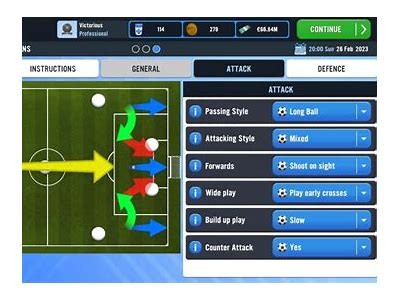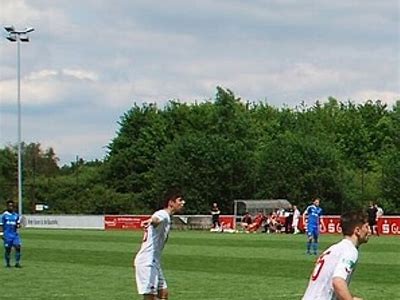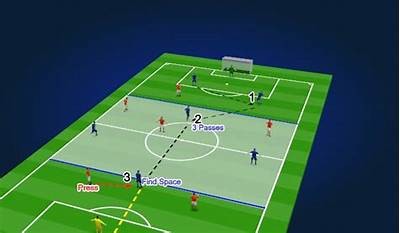The third league soccer season presents a unique set of challenges for teams, players, and coaching staff. Unlike higher leagues, where financial backing and more experienced players can outweigh obstacles, the third league often involves clubs struggling to find financial viability, player development, and on-field consistency. This article aims to provide expert tips for successfully navigating the difficulties that arise throughout the season.

The third league operates in a distinct environment compared to other tiers of soccer. Teams may lack the resources of their higher-league counterparts, leading to an emphasis on building a club identity and community connection. Understanding this landscape is crucial for coaches and management. The focus should be on creating a sustainable culture that develops players and engages fans, even during tough times.

A successful team in the third league is one that functions as a cohesive unit. Coaches are encouraged to invest time in team-building exercises and foster relationships among players. Establishing trust and camaraderie on and off the field can greatly improve performance. Regular meetings, social outings, and collaborative training sessions can help strengthen bonds among teammates.

In the third league, clubs often rely heavily on developing young talent. Establishing a robust academy and mentorship system is essential. Coaches should focus on identifying potential talent within their local communities and providing them with the necessary training and exposure. Ongoing assessments of player progress and tailored development plans can help maximize the potential of each individual on the team.

Good communication is the backbone of any successful organization. In a sport where teamwork is critical, coaches must ensure that communication channels are clear and open among players, staff, and management. Regular feedback sessions, both on performance and personal development, can assist in fostering an environment where players feel comfortable expressing their thoughts and concerns.

Analyzing opponents and planning for games should be approached with both creativity and analytical rigor. Third-league teams often benefit from an unconventional approach to tactics, as they may not have the same level of scouting as higher-league teams. Investing time into studying opponents’ previous games and understanding their strengths and weaknesses can provide a competitive edge. Moreover, creating adaptable strategies that allow for in-game adjustments based on the flow of play is essential.
Engaging with fans is vital for the brand and existence of a third-league club. Fans often support their local teams out of passion rather than financial gain. Clubs should prioritize community outreach and involve fans in the club’s journey. Initiatives such as fan forums, meet-and-greets with players, and involvement in local events can foster a strong connection between the club and its supporters.
Financial management is one of the most challenging aspects of running a third-league club. Teams must operate within their budgets while trying to be competitive on the field. Clubs should develop a clear financial plan that includes income from ticket sales, sponsorship, and merchandise. Additionally, transparent communication with stakeholders about financial decisions can strengthen trust within the community.
The use of technology in soccer is expanding, and third-league teams should embrace it to enhance performance and operational efficiency. Video analysis tools, fitness tracking devices, and data analytics can provide deep insights into player performance and team strategy. Investing in these technologies may not always seem feasible, but exploring partnerships with tech companies or local universities can provide an entry point.
Pressure can mount quickly in the third league, where performance is often scrutinized closely by fans and local media. Coaches and players need to develop mental resilience to cope with the ups and downs of the season. Psychological training, workshops, or even seeking guidance from sports psychologists can equip teams with techniques to manage stress and expectations effectively.
Developing a culture of continuous improvement is crucial for the long-term success of third-league teams. Regularly reviewing performances, both individually and collectively, helps identify areas for growth. Implementing a system of feedback loops, where players and coaches can assess and discuss performance outcomes, can lead to significant improvements over time. The willingness to learn and adapt is a hallmark of successful organizations.
While navigating the challenges of the third league soccer season can seem daunting, it is also an opportunity to foster growth, resilience, and community engagement. By focusing on team cohesion, player development, and strategic management, clubs can build a stable foundation that encourages success on and off the field. With patience, dedication, and strategic thinking, teams can thrive in the unique environment of the third league and pave the way for a brighter future.
转载请注明:willbet Free Online Games » octo attack » Expert Tips for Navigating the Challenges of the 3rd League Soccer Season